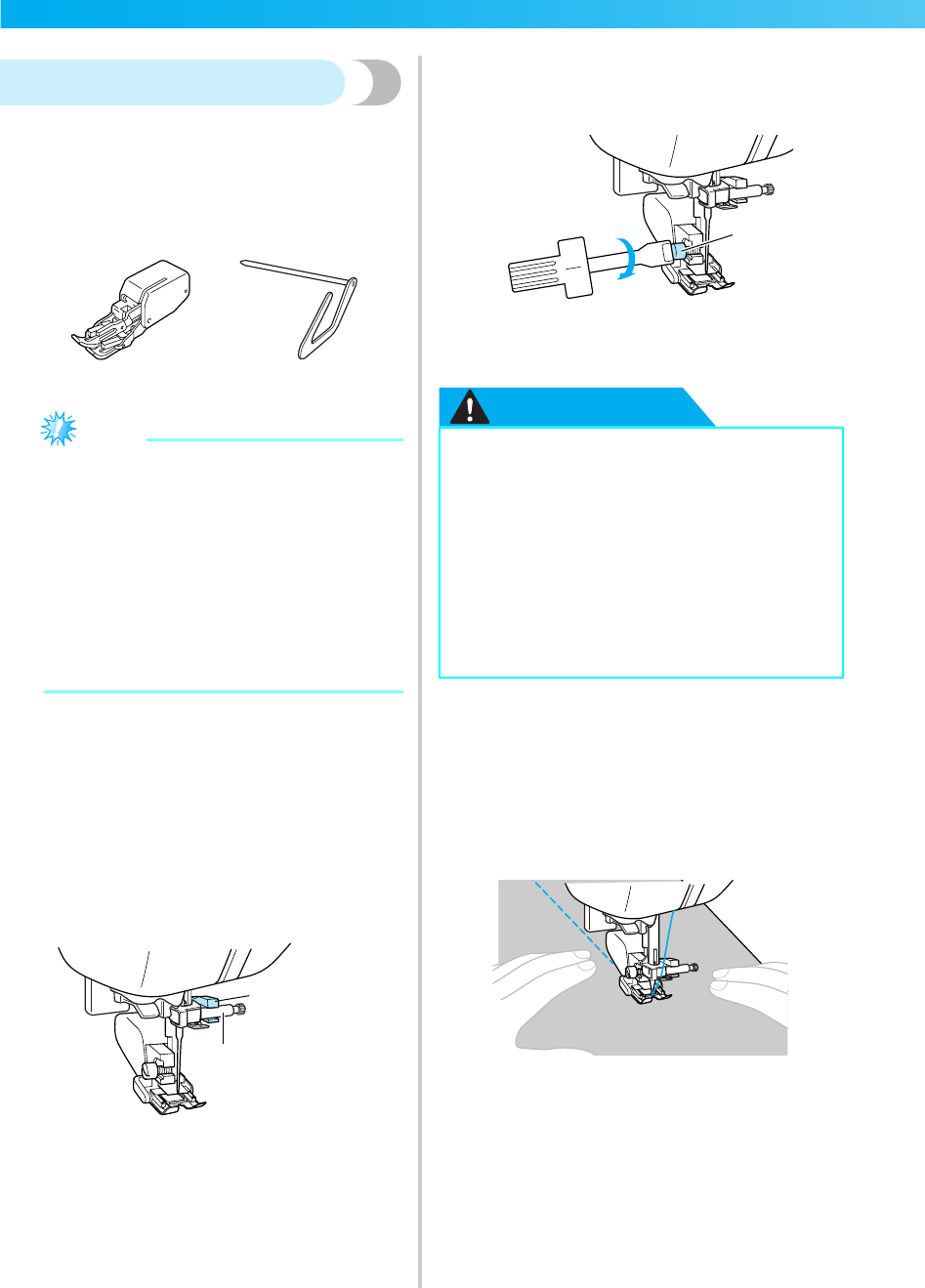
100
UTILITY STITCHES — — — — — — — — — — — — — — — — — — — — — — — — — — — — — — — — — — — — — — — — — — —
Quilting
Sandwiching batting between the top and bottom
layers of fabric is called "quilting". Quilts can easily
be sewn using the optional walking foot and the
quilting guide.
Note
z When sewing with the walking foot, sew at a
speed between slow and medium.
z When quilting, use a 90/14 home sewing
machine needle.
z The walking foot can only be used with
straight or zigzag stitch patterns. Reverse
stitches cannot be sewn with the walking
foot. Only select straight or zigzag stitch
patterns with reinforcement stitches. For
details, refer to "Stitch Setting Chart"(page
70).
a
Baste the fabric to be quilted.
b
Remove the presser foot and the presser foot
holder.
• For details, refer to "Removing and attaching
the presser foot holder" (page 45).
c
Hook the connecting fork of the walking foot
onto the needle clamp screw.
a Connecting fork
b Needle clamp screw
d
Lower the presser foot lever, insert the presser
foot holder screw, and then tighten the screw
with the screwdriver.
a Presser foot holder screw
X The walking foot is attached.
CAUTION
e
Select a stitch.
• For details, refer to "Selecting stitching"
(page 49).
f
Place one hand on each side of the presser
foot, and then evenly guide the fabric while
sewing.
Quilting guide
Walking foot
a
b
● Be sure to securely tighten the screw with
the screwdriver, otherwise the needle
may touch the presser foot, causing it to
bend or break.
● Before starting to sew, slowly turn the
handwheel toward you
(counterclockwise) and check that the
needle does not touch the presser foot. If
the needle hits the presser foot, the
needle may bend or break.
a


















